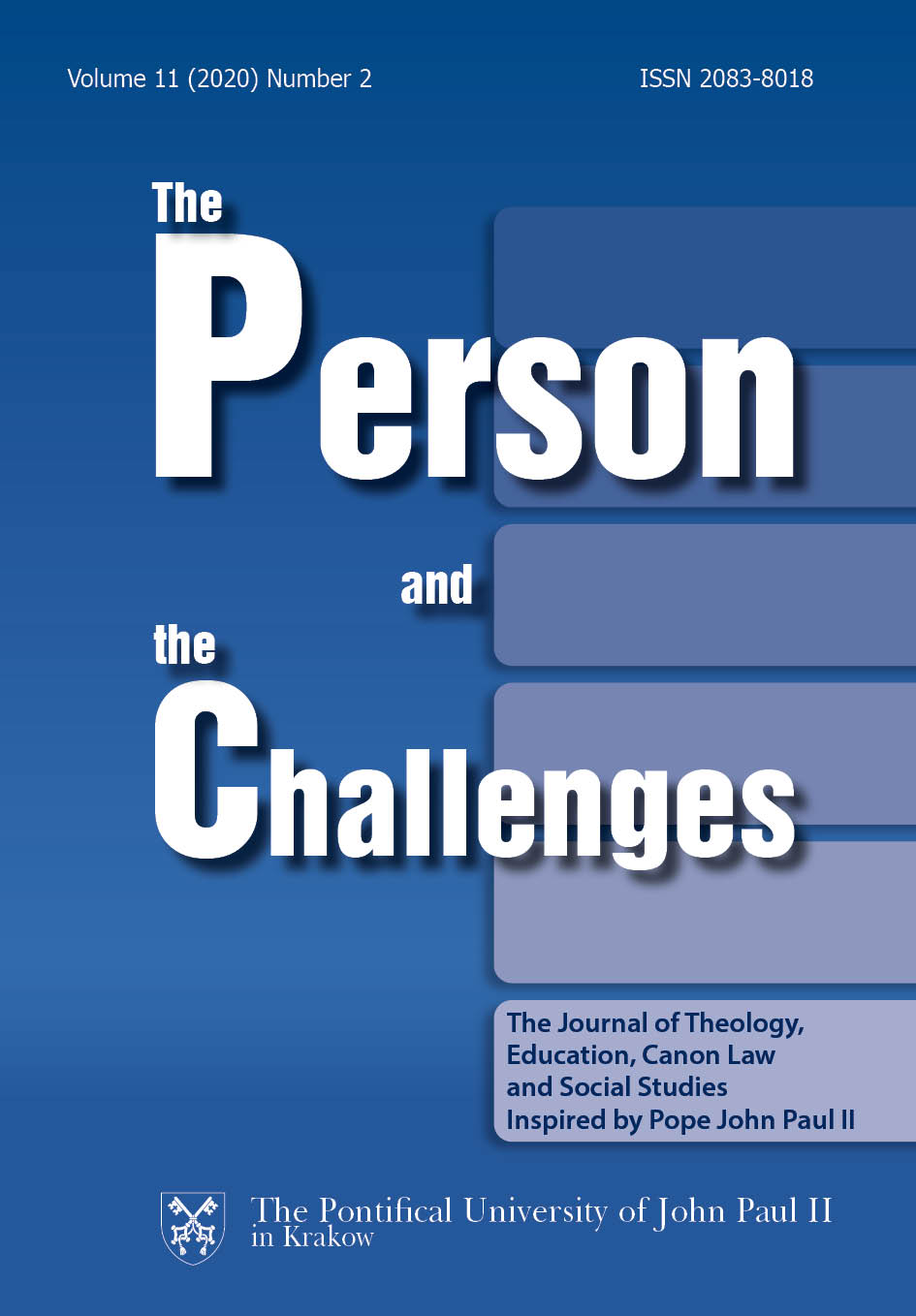Young People and Discernment of Vocations According to the Teachings of Saint John Paul II
DOI:
https://doi.org/10.15633/pch.3752Słowa kluczowe:
John Paul II, Vocation, Discernment, Young PeopleAbstrakt
Many young men and women are often confused when it comes to choosing their vocations and careers. According to Pope John Paul II in PastoresDaboVobis, “Each Christian vocation comes from God and is God’s gift. However, it is never bestowed outside of or independently of the Church. Instead it always comes about in the Church and through the Church a luminous and living reflection of the mystery of the Blessed Trinity.” What churches are doing with youth is commendable. Pope John Paul II earned the confidence of young people because he took them seriously. They sensed that he understood their concerns. He challenged them to give their lives to Christ. He appealed to their high ideals, inviting them to take a lead in the New Evangelization. Amidst the contemporary challenges facing young people, it would be appropriate to find ways of helping youth discern God’s call in their daily struggles. This implies learning to discern God’s voice hidden in the chaos of other worldly voices. The worldly allurements seem to have a great impact amongst youth. They therefore require some guidance from their parents and spiritual leaders in order for them to make the right decisions. This article looks at how Pope John Paul II treated the issue of vocational discernment among young people.
Bibliografia
Bolin J., Paths of Love: The Discernment of Vocation According to Aquinas, Ignatius, and John Paul II, North Charleston 2008, Create Space Independent Publishing Platform.
Ezeani C., When You Leave Religious Life, What Then? “Religious Life Review” (2017) 55(300), pp. 275–297.
Francis, Pope, Amorislætitia: Post-synodal Apostolic Exhortation on love in the family, Vatican City: Libreria Editrice Vaticana, 2016.
Francis, Pope, Evangelii Gaudium: Apostolic Exhortation on the Proclamation of the Gospel in Today’s World, La Santa Sede: Libreria Editrice Vaticana. Archived from the original on 1 March 2019, Retrieved 7 October 2019.
Geertz C., The Interpretation of Cultures, New York: Basic Books, 1973.
Ghezzi B., Saints at Heart, Toronto: Loyola Press, 2011.
Holy Bible, New Revised Standard Version, Catholic ed. San Francisco, CA: Harper Collins, 2007.
Hostie R., The Discernment of Vocations, New York: Sheed & Ward, 1963.
Jackson C., Vocations and Vocation Discernment, “Review for Religious” (2004), 63 (3), pp. 305–315.
John Paul II., Angelus message, December 14, 1980.
John Paul II., Apostolic Letter Dilecti Amici – On the Occasion of the International Youth Year, March 31, 1985.
JohnPaul II., Homily, June 1, 1982.https://www.vatican.va/content/john-paul-ii/en/homilies/1982.index.html
John Paul II., Homily, September 2, 1990. https://www.vatican.va/content/john-paul-ii/en/homilies/1990.index.2.html
John Paul II., Homily, September 7, 1986.https://w2.vatican.va/content/john-paul-ii/en/homilies/1986.index.3.html
John Paul II., Pastores Dabo Vobis (I will give you Shepherds), Nairobi: Pauline Publications, 2006.
John Paul, II. „Familiaris Consortio.” On the Role of the Christian Family in the Modern World” November 22, 1981.
Kavanaugh K., Teresa of Avila, The Interior Castle, Classics of Western Spirituality, Mahwah: Paulist Press, 1979.
Lippman, Laura H., Renee Ryberg, Rachel Carney, and Kris A. Moore.”Workforce Connections: Key “soft skills” that foster youth workforce success: toward a consensus across fields.” Washington, DC: Child Trends, 2015.
Merton, Thomas. Spiritual direction and meditation. Liturgical Press, 1960.
Weigel G., Witness to hope: The biography of Pope John Paul II, New York: Harper Collins, 2001.
Pobrania
Opublikowane
Numer
Dział
Licencja
Autorzy publikujący w czasopiśmie udzielają jego wydawcy zgody o następującej treści:
- Autor zachowuje autorskie prawa majątkowe do utworu, a jednocześnie udziela wydawcy czasopisma zgody na jego pierwszą publikację w wersji drukowanej i wersji online na licencji Creative Commons Uznanie autorstwa 4.0 Międzynarodowe oraz zgody na wykonywanie opracowań, w tym przekładów.
- Autor ma możliwość udzielania zgody niewyłącznej na opublikowanie utworu w wersji, która ukazała się w czasopiśmie (np. zamieszczenia go w repozytorium instytucjonalnym lub opublikowania w książce), wraz z informacją o jego pierwszej publikacji w czasopiśmie.
- Autor może umieścić swój utwór online (np. w repozytorium instytucjonalnym lub na swojej stronie internetowej) jeszcze przed zgłoszeniem utworu do czasopisma.

